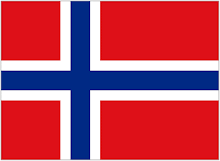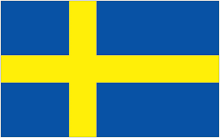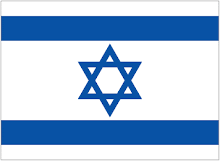"While dictators rage and statesmen talk, all Europe dances — to The Lambeth Walk."
Monday, 23 March 2009
When the Strands of History Come Together
Glancing at Wikipedia's 'on this day' section, I notice four events occurred which at first seem quite separate from each other, but actually have a strong relationship if not to each other, then to the modern world.
On 23rd March 1775 Patrick Henry made his "Give me liberty or give me death," speech to the Virginia House of Burgesses. This speech is credited with convincing said house to commit troops to the American Revolution.
On 23rd March 1933 the German Reichstag passed the Enabling Act, which effectively gave Adolf Hitler dictatorial powers over Germany by ensuring any decisions he made could bypass the Reichstag.
On 23rd March 1940 the Muslim League drafted the Lahore Resolution, calling for greater autonomy in British India.
On 23rd March 2007 Iranian Revolutionary Guards captured 15 Royal Navy personnel and imprisoned them for 12 days.
All of these events still seem relevant when you look at current affairs. In the first we see a patriot lamenting the state of his nation and the treatment of his countrymen by what he sees as a tyrannical force completely out of touch with the populace and its customs - Geert Wilders, anyone?
The analogy is far from perfect and obviously they have some completely different goals, but the similarity is there - both free-born men who wish to decide their own fate, not be at the behest of outside forces or traitors in their own land.
As for the Enabling Act in 1933 - there are many chilling similarities between this law and the Civil Contingencies Act of 2004, a New Labour nonsense foisted on the British people for use in an 'emergency'. We also have the Terrorism Act and the ID Cards Act.
The political Left spend much time discussing the rise of the 'far-Right' and how Europe should have learned its lessons from fascism the first time around, but another thing people should have learned is giving the government, any government, unlimited power is a terrible and potentially tragic error.
Even if one see the current British Government as benign, which I do not, there is no telling what the government of tomorrow will be like. The Civil Contingencies Act basically allows the Prime Minister and the Cabinet to bypass Parliament on a range of issues, temporarily suspending any Act of Parliament but the Human Rights Act 1998 (naturally, the least useful piece of legislation must remain).
This includes suspending the right to trial by jury, and taking on powers nominally reserved for the Sovereign such as suspending Parliament or even suspending elections. It also includes all of our ancient freedoms and liberties, generally found in the Habeas Corpus Act 1679 and the Bill of Rights 1689. Of course, these are the rights which our soldiers are dying to spread to far-off deserts.
As for the other two events - to me they encompass the idea that nearly 70 years apart, Muslims are still trying to blackmail the West to get their way through violence.
Of course, the British and the Hindus and Sikhs were far from blameless during the partition of India, but the demands made by the Muslim League are largely responsible for the ongoing insurgency in Kashmir, and the belief of many Pakistanis that more of India belongs to them than is contained within Pakistan's borders (that and, of course, India's large Muslim population).
Perhaps not explicitly, but like all ideas of Islamic supremacy masquerading as civil rights, it's there in the background.
That leads us neatly on to the incident in 2007. At that point, we were probably almost at war with Iran due to groups they backed, armed and funded being responsible for many British deaths in both Afghanistan and Iraq.
However, they had to add insult to injury - from Wikipedia:
Iranian military personnel seized 15 Royal Navy personnel during 2007 and held them for 12 days. On 23 March 2007, 15 British Royal Navy personnel, from HMS Cornwall, were surrounded by the Navy of the Iranian Revolutionary Guards and were subsequently detained off the Iraq-Iran coast. In the course of events, the British forces claimed that the boat was in Iraqi waters, but the Iranian side insisted that they were in Iran's territorial waters. A year later a British investigation report[1] was released which stated that the area in which the incident took place was not covered by any formal agreement between Iran and Iraq.[2][3] The 15 personnel were released on 4 April 2007.
Iranian President Mahmoud Ahmadinejad unexpectedly announced the release of the captives halfway through a long press conference on the afternoon of 4 April 2007.[99][100]
"On the occasion of the birthday of the great prophet, and for the occasion of the passing of Christ, I say the Islamic Republic government and the Iranian people — with all powers and legal right to put the soldiers on trial — forgave those 15. This pardon is a gift to the British people."[20] When returned to the UK the group claimed to have been put under "constant psychological pressure" from the Iranian authorities.[21] In addition, British equipment including secure voice communication kit and navigational hardware has not been reported as being returned.
Ahmadinejad reiterated the statement that Iranian waters had been breached, and he praised the border guards who detained the British personnel. Abolqassem Amangah, commander of Iran's southwestern Maritime Border Patrol Guard was awarded the third degree medal of bravery for stopping the sailors. Ahmadinejad also criticized the British government for sending the mother of a child to the battlefield, and asked the government "not to prosecute them for their confessions." The release was announced after the British government supposedly sent a letter of apology to the Iranian government, accepting the breaching of their border, the illegal insertion of military units in Iran and the promise that Iranian territory would never be violated again. However, the British government denies that such a letter exists, and says that the release was performed without any agreement from both sides.[101]
After the conference, the Britons met Ahmadinejad outside the presidential palace, where they reportedly showed their appreciation for their release.[70][102] Later Tony Blair said he was glad and stated that he "bears Iranian people no ill will."[103] They were released on 5 April 2007.[104] Whilst in Iran one of the sailors stated that when interviewed by British media at home, he would say nothing different than comments he has made in Iran about being well treated by the authorities. "I would not say anything different to here and I will be completely truthful. I will definitely promote Iran actually; there is a lot of ignorance in the UK about Iran and the people".[105]
The release was presented to suggest that it was an Easter "gift" to the British people; to this end the captives were not released to British consular officials but placed directly aboard British Airways flight BA6634 (flown by franchisee British Mediterranean Airways using Airbus A321 G-MEDL), a direct flight to the UK, on the morning of 5 April 2007,[106] landing at about 12 noon local time.[107] They were given gifts of CDs, Persian candies, pistachio nuts, books, vases and handicrafts by the Iranians. After a briefing on board at London Heathrow, the press were allowed a short photographic opportunity, before the personnel were flown directly to Royal Marines Base Chivenor in north Devon by two Royal Navy Westland Sea King helicopters for medical checkups, a full debriefing and meeting with their families.[107]'
An extraordinary incident, a classic example of Islamist attempts to blackmail free nations. However, I don't fee our own version of the Enabling Act did anything to prevent this, and it won't the next time it happens, even if it occurs on our own soil.
It will just gradually erode the differences between free countries and those that aren't lucky enough to be free.
On balance, I think this is one of the many, many reasons why I prefer Geert Wilders to George Galloway.
On 23rd March 1775 Patrick Henry made his "Give me liberty or give me death," speech to the Virginia House of Burgesses. This speech is credited with convincing said house to commit troops to the American Revolution.
On 23rd March 1933 the German Reichstag passed the Enabling Act, which effectively gave Adolf Hitler dictatorial powers over Germany by ensuring any decisions he made could bypass the Reichstag.
On 23rd March 1940 the Muslim League drafted the Lahore Resolution, calling for greater autonomy in British India.
On 23rd March 2007 Iranian Revolutionary Guards captured 15 Royal Navy personnel and imprisoned them for 12 days.
All of these events still seem relevant when you look at current affairs. In the first we see a patriot lamenting the state of his nation and the treatment of his countrymen by what he sees as a tyrannical force completely out of touch with the populace and its customs - Geert Wilders, anyone?
The analogy is far from perfect and obviously they have some completely different goals, but the similarity is there - both free-born men who wish to decide their own fate, not be at the behest of outside forces or traitors in their own land.
As for the Enabling Act in 1933 - there are many chilling similarities between this law and the Civil Contingencies Act of 2004, a New Labour nonsense foisted on the British people for use in an 'emergency'. We also have the Terrorism Act and the ID Cards Act.
The political Left spend much time discussing the rise of the 'far-Right' and how Europe should have learned its lessons from fascism the first time around, but another thing people should have learned is giving the government, any government, unlimited power is a terrible and potentially tragic error.
Even if one see the current British Government as benign, which I do not, there is no telling what the government of tomorrow will be like. The Civil Contingencies Act basically allows the Prime Minister and the Cabinet to bypass Parliament on a range of issues, temporarily suspending any Act of Parliament but the Human Rights Act 1998 (naturally, the least useful piece of legislation must remain).
This includes suspending the right to trial by jury, and taking on powers nominally reserved for the Sovereign such as suspending Parliament or even suspending elections. It also includes all of our ancient freedoms and liberties, generally found in the Habeas Corpus Act 1679 and the Bill of Rights 1689. Of course, these are the rights which our soldiers are dying to spread to far-off deserts.
As for the other two events - to me they encompass the idea that nearly 70 years apart, Muslims are still trying to blackmail the West to get their way through violence.
Of course, the British and the Hindus and Sikhs were far from blameless during the partition of India, but the demands made by the Muslim League are largely responsible for the ongoing insurgency in Kashmir, and the belief of many Pakistanis that more of India belongs to them than is contained within Pakistan's borders (that and, of course, India's large Muslim population).
Perhaps not explicitly, but like all ideas of Islamic supremacy masquerading as civil rights, it's there in the background.
That leads us neatly on to the incident in 2007. At that point, we were probably almost at war with Iran due to groups they backed, armed and funded being responsible for many British deaths in both Afghanistan and Iraq.
However, they had to add insult to injury - from Wikipedia:
Iranian military personnel seized 15 Royal Navy personnel during 2007 and held them for 12 days. On 23 March 2007, 15 British Royal Navy personnel, from HMS Cornwall, were surrounded by the Navy of the Iranian Revolutionary Guards and were subsequently detained off the Iraq-Iran coast. In the course of events, the British forces claimed that the boat was in Iraqi waters, but the Iranian side insisted that they were in Iran's territorial waters. A year later a British investigation report[1] was released which stated that the area in which the incident took place was not covered by any formal agreement between Iran and Iraq.[2][3] The 15 personnel were released on 4 April 2007.
Iranian President Mahmoud Ahmadinejad unexpectedly announced the release of the captives halfway through a long press conference on the afternoon of 4 April 2007.[99][100]
"On the occasion of the birthday of the great prophet, and for the occasion of the passing of Christ, I say the Islamic Republic government and the Iranian people — with all powers and legal right to put the soldiers on trial — forgave those 15. This pardon is a gift to the British people."[20] When returned to the UK the group claimed to have been put under "constant psychological pressure" from the Iranian authorities.[21] In addition, British equipment including secure voice communication kit and navigational hardware has not been reported as being returned.
Ahmadinejad reiterated the statement that Iranian waters had been breached, and he praised the border guards who detained the British personnel. Abolqassem Amangah, commander of Iran's southwestern Maritime Border Patrol Guard was awarded the third degree medal of bravery for stopping the sailors. Ahmadinejad also criticized the British government for sending the mother of a child to the battlefield, and asked the government "not to prosecute them for their confessions." The release was announced after the British government supposedly sent a letter of apology to the Iranian government, accepting the breaching of their border, the illegal insertion of military units in Iran and the promise that Iranian territory would never be violated again. However, the British government denies that such a letter exists, and says that the release was performed without any agreement from both sides.[101]
After the conference, the Britons met Ahmadinejad outside the presidential palace, where they reportedly showed their appreciation for their release.[70][102] Later Tony Blair said he was glad and stated that he "bears Iranian people no ill will."[103] They were released on 5 April 2007.[104] Whilst in Iran one of the sailors stated that when interviewed by British media at home, he would say nothing different than comments he has made in Iran about being well treated by the authorities. "I would not say anything different to here and I will be completely truthful. I will definitely promote Iran actually; there is a lot of ignorance in the UK about Iran and the people".[105]
The release was presented to suggest that it was an Easter "gift" to the British people; to this end the captives were not released to British consular officials but placed directly aboard British Airways flight BA6634 (flown by franchisee British Mediterranean Airways using Airbus A321 G-MEDL), a direct flight to the UK, on the morning of 5 April 2007,[106] landing at about 12 noon local time.[107] They were given gifts of CDs, Persian candies, pistachio nuts, books, vases and handicrafts by the Iranians. After a briefing on board at London Heathrow, the press were allowed a short photographic opportunity, before the personnel were flown directly to Royal Marines Base Chivenor in north Devon by two Royal Navy Westland Sea King helicopters for medical checkups, a full debriefing and meeting with their families.[107]'
An extraordinary incident, a classic example of Islamist attempts to blackmail free nations. However, I don't fee our own version of the Enabling Act did anything to prevent this, and it won't the next time it happens, even if it occurs on our own soil.
It will just gradually erode the differences between free countries and those that aren't lucky enough to be free.
On balance, I think this is one of the many, many reasons why I prefer Geert Wilders to George Galloway.
Labels:
India,
Iran,
Islam,
Pakistan,
Royal Navy,
Western History
Subscribe to:
Post Comments (Atom)
.jpg)

















































































No comments:
Post a Comment